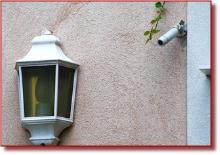![]()
![]()
![]()
![]()
![]()
![]()
![]()
![]()
![]()
![]()
![]()
![]()
![]()
![]()
![]()
![]()
![]()
![]()
![]()
![]()
![]()
![]()
![]()
![]()
![]()
![]()
![]()
![]()
![]()
![]()
![]()
![]()
![]()
![]()
![]()
![]()
![]()
![]()
![]()
![]()
IMPORTANT: No material may be reproduced, copied or redistributed from this site, without the express written consent of doktorjon.co.uk
All the detailed information on this site is provided in good faith; and as such, Doktor Jon does not accept responsibility for any consequential loss, injury or disadvantage resulting from any individual or organisation acting on the details contained herein.
© doktorjon.com 2004 - 2010
![]()

Doktor Jon goes into a bit more detail on using residential CCTV
It's already been mentioned that most basic 'domestic' grade CCTV cameras will not stand up to more challenging tasks, and so in situations where more detailed image quality is required, it may be necessary to look at using more appropriate 'commercial' type equipment.
Please Note - Doktor Jon is currently upgrading his site, so you may see some layout changes on various pages, whilst the work is in progress.
Hopefully, the complete re-design and improvements, should be completed by early 2010.
Compared to normal domestic CCTV cameras, commercial or light industrial units are a bit like comparing a transistor radio to an expensive music system; you pays yer money and takes your choice.
Actually, on the question of money, it's worth mentioning that a typical camera for home use should cost perhaps £ 25.00+ (B&W), and up to £ 60.00+ ( for Colour), here in the U.K. (that's equivalent to US $ 40 - 95.00 or Euros 30 - 75.00; although purchase costs are generally much lower in the U.S. market place). Whatever you do, don't be tempted to buy cheap products from another country, as it may not work when you get it home (different television standards mean that normal cameras in one country, may not be compatible with equipment in another!).
These cameras are widely available in a range of styles, but it is important to read the manufacturers information carefully; there really is no such thing as a free lunch, at this end of the market!
Whilst these high street sourced cameras are ideal for use with a standard (either 'SCART' or 'Phono' Aux. video input equipped) television, they can also be used with a number of additional accessories to broaden the scope of the system. Items such as basic video switchers, movement sensors, lighting controllers, microphones, a video recorder and time & date display devices, can all be used to enhance the performance of the installation. Incidentally, whilst printing the time and date on a 'domestic' recording is not manadatory, it is generally advisable if the material is ever likely to be used as evidence.
Much of the basic equipment can easily be installed by anyone comfortable with using a screwdriver and an electric drill, although not necessarily at the same time!!.
For those more interested in computers, there is an increasing move towards using basic 'networkable' cameras connected to a PC for both recording, and remote site monitoring.
Basic webcams are certainly improving in quality all the time, but they are mostly not designed for 'evidential' CCTV work (this is most obvious where cameras are used in low light conditions). More expensive commercial 'IP Video' cameras are generally much higher performance, but they are not always the camera of choice for most residential properties.
One important point to mention; it's rarely the preferred option to use a home computer as the recording system. Apart from possible quality and reliability issues, there is also an obvious problem that if the police require the recordings for eventual court use, they may well seize the computer to secure the recorded evidence.
For larger properties and estates, it does make sense to use much higher quality industrial CCTV products, albeit that it is often that much harder to find either a supplier or installer that really knows their stuff inside out. They are out there, you just have to look hard ....
There is a large amount of information on the 'heavier end' of the CCTV industry, which you can find in the Technical Section of this site.
One final point on domestic cameras. If you absolutely must use a Dummy camera or housing, make absolutely sure it doesn't have a flashing LED - working cameras don't have them!
Using CCTV in specific residential locations >>>






